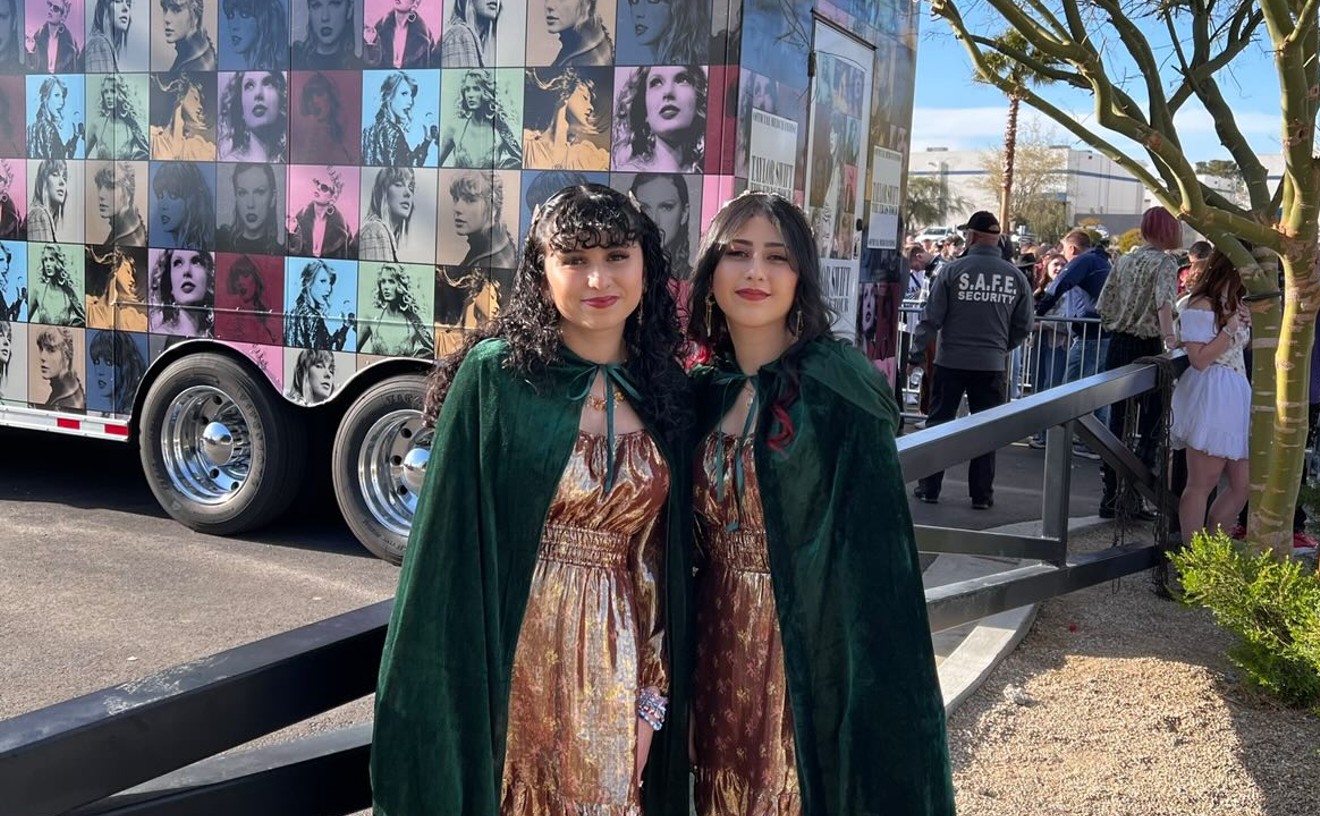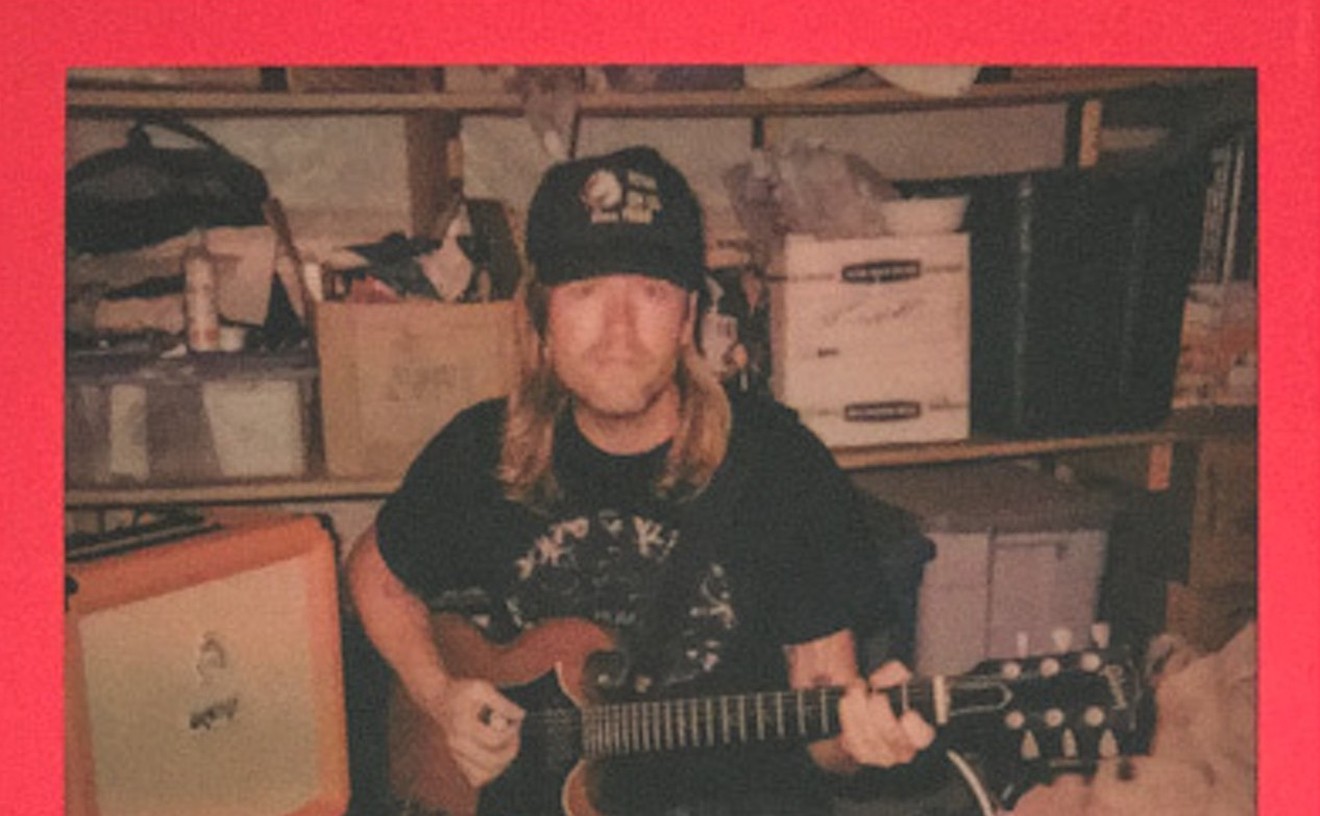But no matter how artistically inclined one might be, if you're from anywhere else in the world, would you actually choose Reykjavik as your ultimate destination on the path to cultural greatness? Most of the year it's dark and cold, not to mention outrageously expensive. And with a population of just 260,000, there's little chance of becoming anything more than a big puffin in a small, subzero pond. Wallowing in the hot springs of local success is all very well, but it can get cramped after a while.
It comes as no surprise, then, to hear that Iceland's second-largest musical export after Björk are getting itchy feet. Following in the avant-pop songstress' footsteps (Björk moved to London before she gained true international recognition following her split from the Sugarcubes), techno popsters Gus Gus have come to the conclusion that it's time to move onward and up...well, southward, actually.
"We need to be here to be able to be in the best contact with the people we're working with," Gus Gus founding member Siggi Kjartansson says on a recent trip to Los Angeles, his intended new home.
Siggi, one of the two filmmakers in this audio-visual electronic music collective, has the most clear-cut ambitions of the group, along with those of his half brother Stefán rni (also a filmmaker). Since the last Gus Gus album, 1999's This Is Normal, the pair have been working on a series of commercials for Levi's, in conjunction with the prestigious international ad agency TBWA Chiat/Day. They begin airing stateside this month. Exceptionally conceived and shot, each of the four commercials consists of 10 three-second moments "like a beautiful photo exhibition," created, storyboarded, directed, music-supervised, and mixed by the duo. (Siggi also acts in one of the commercials, "to get some extra money," he deadpans.)
This type of project, and furthering the visual side of Gus Gus, is where Siggi sees the group heading, and because of that, L.A. holds the most appeal. "Working in a little city like Reykjavik, it's almost a nonmarket for people who want to make music and films -- at least, experimental music and experimental films," he says. "Coming here and being appreciated for that is very rewarding. This is the place to be for us, to be able to make it happen. To do all the things we want to achieve."
Although hinting at an eventual winding down of the band ("The plan is to make feature films, after Gus Gus has succeeded in what we set out to do," he says), Siggi reaffirms the collective nature of the group, and it seems for now that everyone's happy with their side projects and the artistic freedom that comes from being Iceland's answer to the Wu-Tang Clan.
But it hasn't always been so. In the last year, Gus Gus has slimmed down from a nine- to a five-piece group. Three of the four deserters left on good terms and are still variously involved with the band. Baldur Stefansson, their idiosyncratic manager and the first to move to L.A., is now taking more of an advisory role, handing over management duties to Bruce Kirkland and John Babbitt's Second Vision so he can focus on an Internet music venture. Singer Magnús Jónsson has formed a new electronic music label in Iceland. And programmer Herb Legowitz has decided to concentrate more on DJ stints and other solo projects. But singer Hafdís Huld was unceremoniously booted out on the eve of last year's This Is Normal U.S. tour, causing something of a disturbance within the ranks.
"We quit with Hafdís basically because it came to a stage where it was very difficult for us to work together," offers Biggi Thorarinsson, the group's main programmer and songwriter. Nineteen-year-old Huld distributed a bitter press release just days after her sacking, but on that subject, the boys remain politely unforthcoming.
"She was not happy about leaving," concedes singer Daníel gúst. "But we're happy. Everything's easier now we're fewer people. The ego mountain has turned into an ego hill."
During a long winter break following Hafdís' sacking, Siggi and Stefán rni produced the Levi's commercial; gúst scored a ballet with fellow Icelandic electronic artist Bix; and Thorarinsson and DJ Steph remixed Björk and Depeche Mode, later touring Europe as an instrumental duo. The remaining five are now ready to start work on the third Gus Gus album. Last month, however, they released an interim instrumental album, Gus Gus vs T-World, on 4AD/Beggars Banquet.
"T-World was the band Herb and me were in prior to Gus Gus," explains Thorarinsson. "We were invited to work with Siggi and Stefán rni to provide music for a short film they were producing, and that's originally how Gus Gus came together."
T-World may have been gone, but it clearly wasn't forgotten. The seven tracks on the new record were originally recorded back in '94 and '95 by the duo. "We edited it down a little bit, but otherwise it's the same recordings and the same mix," reveals Thorarinsson.
The result is, not surprisingly, similar in vein to the first Gus Gus album, Polydistortion (an album less poppy and more introspective than last year's follow-up), minus the vocals and with a heavier, club vibe. To their credit -- and even with the six-year delay -- it sounds remarkably fresh, the deep beats and a few now well-worn samples only serving to substantiate their early experimental leanings. "Anthem," the album's opening track, mixes bubbling arpeggios, filter sweeps, TB303 bass lines, and tribal beats into a gradually unfolding musical journey through house and trance. Elsewhere, characteristic Gus Gus-esque disco elements creep in, notably on the funky "Northern Lights."
"I used to love all the high-energy stuff from Detroit and Chicago. It's basically disco with a lot of synths," says Thorarinsson, whose influences range from American house DJs like Carl Craig, Derrick May, and Joey Beltram to early electronic groups Depeche Mode, Kraftwerk, and Soft Cell (the name T-World is an abbreviation of a Marc Almond lyric that goes "The followers of the world").
The album's sparsest track, "Rosenberg," revolves around a dirty bass-synth line and classic Roland TR808 drumbeats, punctuated with shuffling hi-hat cymbals. It's techno by numbers but with enough attitude to hold its own on the dancefloor. "That track was recorded in the Reykjavik club Rosenberg, hence the name," Thorarinsson explains. "It's a bit of a history lesson, but it's a nice, dancey, deep tribal house number that worked perfectly on the night."
Thorarinsson and Alfred More (the band's photographer, cinematographer, and DJ, also known as Steph) have recently been touring the instrumental record around France and Portugal, the two countries outside of Iceland where Gus Gus enjoy their biggest following. It's gone so well that they say a lot of their new album, much of which was sketched out on the road, will incorporate a greater proportion of instrumentals than the previous two.
"We're in quite a retro mood," says Thorarinsson. "I think dance music in general is kind of looking back and reinventing itself, and that's largely what we've been doing as a group this past winter."
Being a smaller group now, he says, is making them sharper, more focused, and edgier. "The group has tightened up a lot," concurs gúst. "It's more compact, concentrated, and we have more of a togetherness we never had before. It used to be impossible making decisions. We had to have constant meetings. But there's less of that now, which means we get more work done. The next album will definitely reflect these changes. Our first two albums are quite schizophrenic -- each track was very different. Now we're trying to build a solid one-unit base, and it's sounding much more together."
The instrumental album also marks their last for 4AD/Beggars Banquet in the United States. The group are said to be close to signing with Palm Pictures (also home of Supreme Beings of Leisure) -- a label that's appropriately interested in both the group's music and visual sides (in fact, a DVD to follow their next album is already in the works, according to Siggi).
As a touring group, Gus Gus' activities have recently been rekindled with a smattering of West Coast shows featuring all five group members. Now less of a bombastic presence onstage than in the past, they're relying more than ever on the visuals to pump up the live experience.
"What people often don't realize," says Siggi, who describes their live show as a cross between being at the cinema and a KISS concert, "is that our show is completely live. We're not like most electronic bands who use backing tapes and just fiddle with a few synth settings. That goes for everything, even the visuals, which I mix live onstage. In that respect, it's different every night. It's become a little bit more hypnotizing lately, instead of being completely in your face, like it used to be. We're going for more of a journey now, but it's still mind-blowing, which is what we have in common with KISS." Without the makeup, incidentally.
If it weren't for the fact that Gus Gus are supremely talented, both collectively and individually, the seriousness and conviction with which they discuss their art could easily be construed as conceited. They rarely crack a smile, and their humor is so beneath the surface, you need a pretty good grasp of irony to work out when they're being funny (let's not forget: This is a group whose biggest hit to date, "Ladyshave," is about shaving off your girlfriend's pubic hair...that's funny, right?). Their records have been criticized for being meandering. But at the same time, they're also charmingly diverse -- just like the individual members of the band.
"We let everybody grow within their own specialties and try to create the necessary space for each to have creative freedom," affirms gúst. "Being from Iceland, you don't get as pushed around with material that you should be listening to, so there's no need to cling together to form clubs around certain lifestyles. It's a very healthy place to be an artist. Being able to filter what's coming in, we're able to exclude the bullshit."










